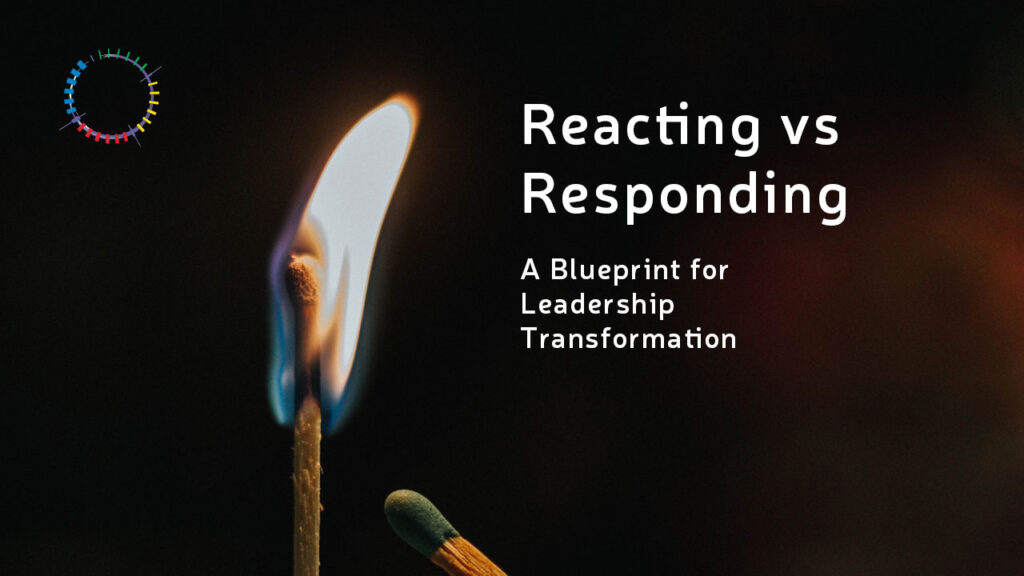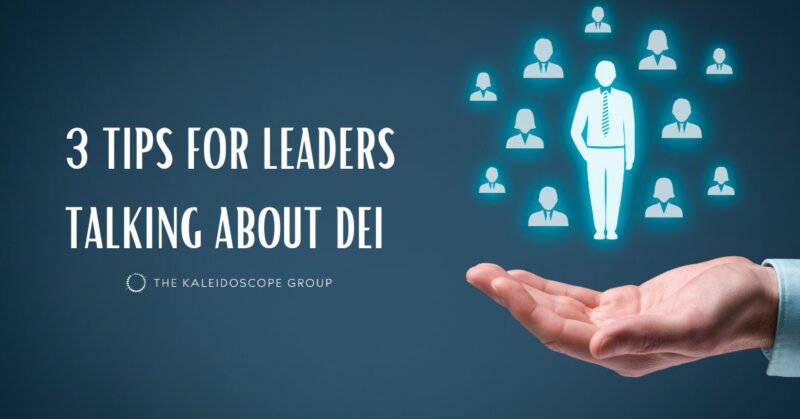A Blueprint for Transforming Communication: Reacting vs. Responding
April 15, 2020

Communication: Transforming Reactions into Responses
Imagine someone, a friend, a boss or a colleague, berating you about something you did that was unpleasing in their eyes. What do you do? Do you react in a way that might escalate into a full-blown contentious confrontation? Do you just sit there and take it to preserve the relationship and to live another day? Do you think about your response before you react to consider the outcome you desire? Each option is a realistic one and many of us have employed them all in different situations. The key is to not allow your reactions to overshadow your responses.
Reacting is a bit different from responding. When we react, many times it is instinctive, reciprocal or in opposition to a particular situation or person. That reaction may be favorable or not, depending on how you feel. Responding, while technically a reaction, takes into consideration the desired outcome of the interaction. A reaction may result in a positive or negative outcome whereas a response is engineered to produce a positive or negative outcome. Reacting is emotional, responding is emotional intelligence.
There are debates on the dimensions of emotional intelligence but there is no debate that having emotional intelligence elevates a reaction to a response. Here are five dimensions of emotional intelligence that will improve your ability to respond versus react, which can help you develop more inclusive behaviors and teams.
Self-Awareness in Communication – Understanding our emotions and true feelings
Many of us spend so much time figuring out what other people need to improve and frequently place the blame for our failings on others. This is not to say that when others negatively impact our success that we should ignore it. However, being self-aware enables us to recognize what role we play in all situations. If we recognize our emotions and their effects we end up having a better sense of who we are, what works and doesn’t work.
Self-Regulation in Communication – The ability to modulate our emotions
It is not enough to be aware of our emotions, we also have to regulate them. This doesn’t mean that we can’t be angry or sad but rather requires us to determine how long will we be that way, will we choose to react in that emotion and above all, understanding that we are accountable for our actions. We can’t just say, “They made me do it”. Occasionally our children call us to task when we tell them to be accountable and then ignore our own advice when we are faced with challenging situations. We might not be able to control what happens to us but we can control how we respond to our circumstance.
Motivation Behind Communication – The ability to put the goal front and center
The goal is the prize, not the reaction. When we realize that the reaction might make us feel good for a moment (I sure gave them a piece of my mind) but doesn’t help us reach our goal, we develop different responses. If the goal is to give them a piece of your mind, then the reaction is perfect. If for example, the goal is to create a new product, then your response should help you reach that goal. How you respond to achieve the desired outcome is critical to success.
Empathy in Communication – The ability to recognize how others feel
In this “I World” everything is about the individual – How I feel, What I want, what I need. The truth is, successful people are those who have empathy for others. Empathy requires a response, not a reaction. The more we consider others, the better we are at understanding others, leveraging diversity and developing others. Our responses are more informed when we have empathy. Consider this: many of us would love it if our bosses could live in our shoes so they might understand how policies, practices, and procedures impact our work. We believe that when they see the impact, they will make better decisions. We call that empathy, which is a key dynamic to appreciating difference and diversity at work.
Social Skills – The cultivation of good interpersonal skills to improve communication
This is a tough one for people who tend to enjoy working on their own, doing their part of a project and passing it on or folks who may prefer staying out of management. However, people skills are critical to choosing a response versus a reaction with no regard to work style, assignment type, and the professional position. A response requires communication, leadership, conflict management, and collaboration just to name a few. Cultivating these skills will improve your ability to enhance your interaction with others and ultimately increase the odds of success.
Conclusion
A reaction is about the moment whereas a response is about the outcome. Even if you were to consider dimensions other than the five mentioned above, the bottom line is, you must become more aware of how your emotions drive your decisions. Understanding that will improve your relationships, your productivity, and your possibilities. This is a blueprint for transforming reactions into responses.
Bonus Point 1: The most effective leaders are the ones who are self-aware, self-regulate, are motivated toward a goal, have empathy and seek to continually hone their social skills.
Bonus Point 2: The best way to change others is to change yourself. This period of social distancing provides a great opportunity to begin self-improvement. Never before have we been confined to our homes with the type of time on our hands to learn new things and to discard some bad habits. Imagine coming back to a work environment with new practices and a different outlook on who you are and who you are determined to be. If you take this time to learn more about yourself you will be better equipped to respond to others versus react to them.


